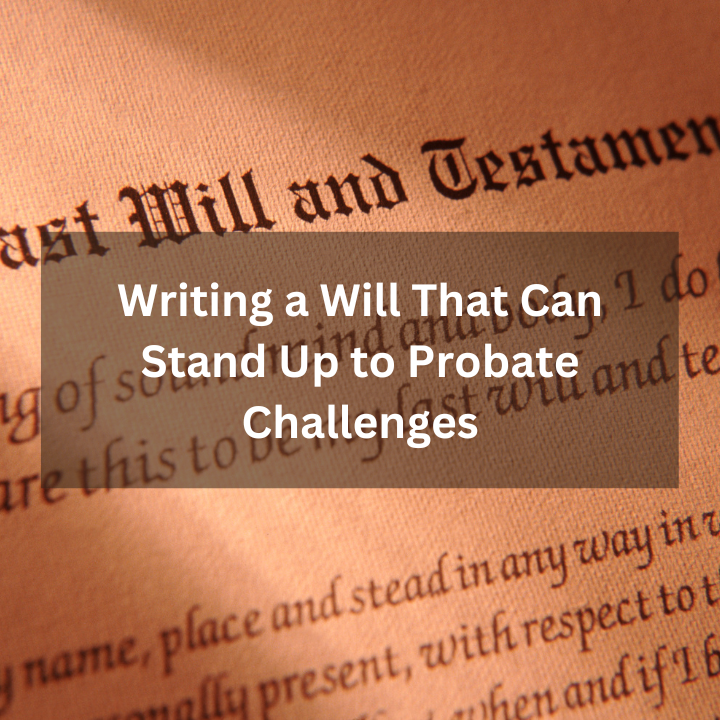- Family Law
- Divorce
-
Personal Injury
- Premises Liability
- Slip and Fall Accidents
- In-Store Slip and Fall Accidents
- Sidewalk Slip and Fall
- Slippery Flooring Accidents
- Snow and Ice Slip and Fall
- Parking Lot Slip and Fall
- Shopping Center Slip and Fall
- Pedestrian Knockdown
- Construction Accidents
- Wrongful Death
- Nursing Home Negligence
- Dog Bites
- Traumatic Brain Injury
- Spinal Cord Injury
- Burn Injuries
- Whiplash
-
Vehicle Accidents
- Car Accidents
- Car Accident Claims Process
- Rideshare Accidents
- Truck Accidents
- Bus Accidents
- Motorcycle Accidents
- Fatal Car Accidents
- Taxicab Accidents
- Subway Accidents
- Distracted Driving
- Drunk Driving Accidents
- Drug-Impaired Driving
- Drowsy Driving
- Rear End Collision
- Hit and Run Accidents
- Road Defects
- Airbag Injuries
- Probate and Estate Planning
Creating a last will and testament is an important step in ensuring your wishes are carried out after you’re gone. However, a will is not immune to challenges by interested parties, namely those who might stand to benefit if the will is voided. By taking certain proactive steps, you can significantly improve the chances of your will withstanding contests to its validity, so that your estate will be managed and distributed as you intended.
In New York, there are limited grounds upon which a will can be contested. These include lack of testamentary capacity, alleged undue influence on the testator, forgery or fraud in the making of the will, improper execution of the will and revocation of the will by a subsequent act. Portions of a will may be challenged if they do not clearly state instructions for disposition of particular assets or if the instructions given cannot be carried out. For example, a provision may describe a beneficiary who cannot be identified or who is in fact deceased.
Here are concrete actions you can take to avoid such contests to your will:
- Include a no-contest clause — Also known as an in terrorem clause, this provision states your intention to disinherit anyone who contests the will. While it may not prevent challenges entirely, it can discourage them.
- Write a letter of intent — Such a letter can explain your reasons for reducing or excluding a particular beneficiary. It further serves as evidence that you were fully capable of making reasoned decisions when making your will.
- Obtain a physician’s evaluation of competency — To ward off any concerns about your mental capacity, consult a physician who can assess and document your mental fitness at the time of signing the will.
- Don’t involve beneficiaries in your will preparation — To avoid any suspicion of undue influence, it’s wise to keep beneficiaries, especially those who stand to gain or lose substantially, at arm’s length during the preparation and signing of the will.
- Ensure compliance with legal requirements — Make sure your will follows all the legal requirements outlined by New York state law, including proper witnessing and notarization.
- Make a video recording of the will signing — While not required, recording the signing of your will can provide visual and audio evidence of your competence and intention. This can be a strong deterrent to potential challengers.
Consulting with an experienced estate planning attorney can provide invaluable guidance in all aspects of will preparation and execution, helping you create a will that is airtight and capable of withstanding any challenge.
For more than 25 years, the attorneys at Goldberg Sager & Associates in Brooklyn, New York have wide experience assisting people with wills, trusts and other estate planning matters. Call us at 718-514-9516 or contact us online to schedule free initial consultation.




